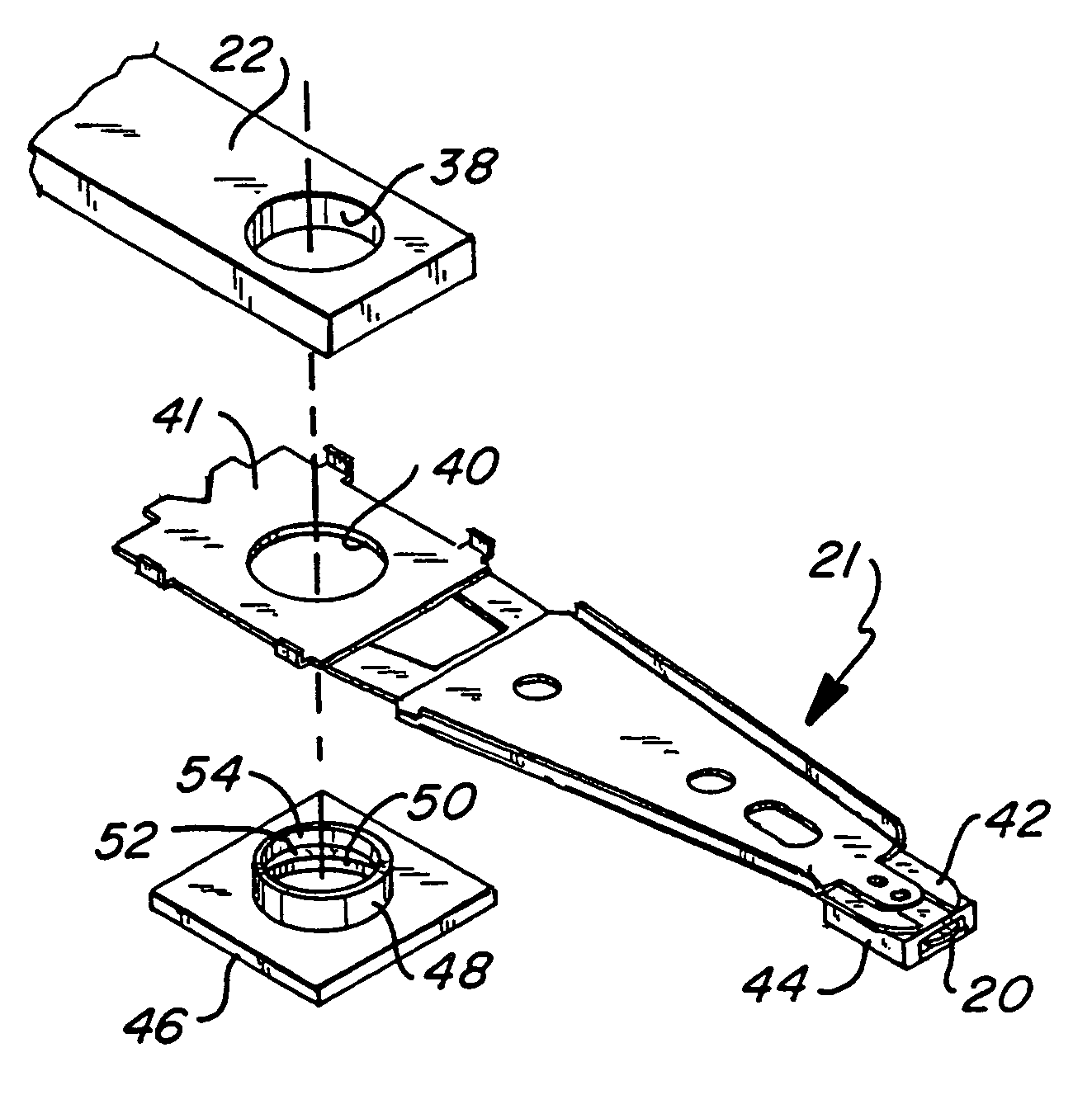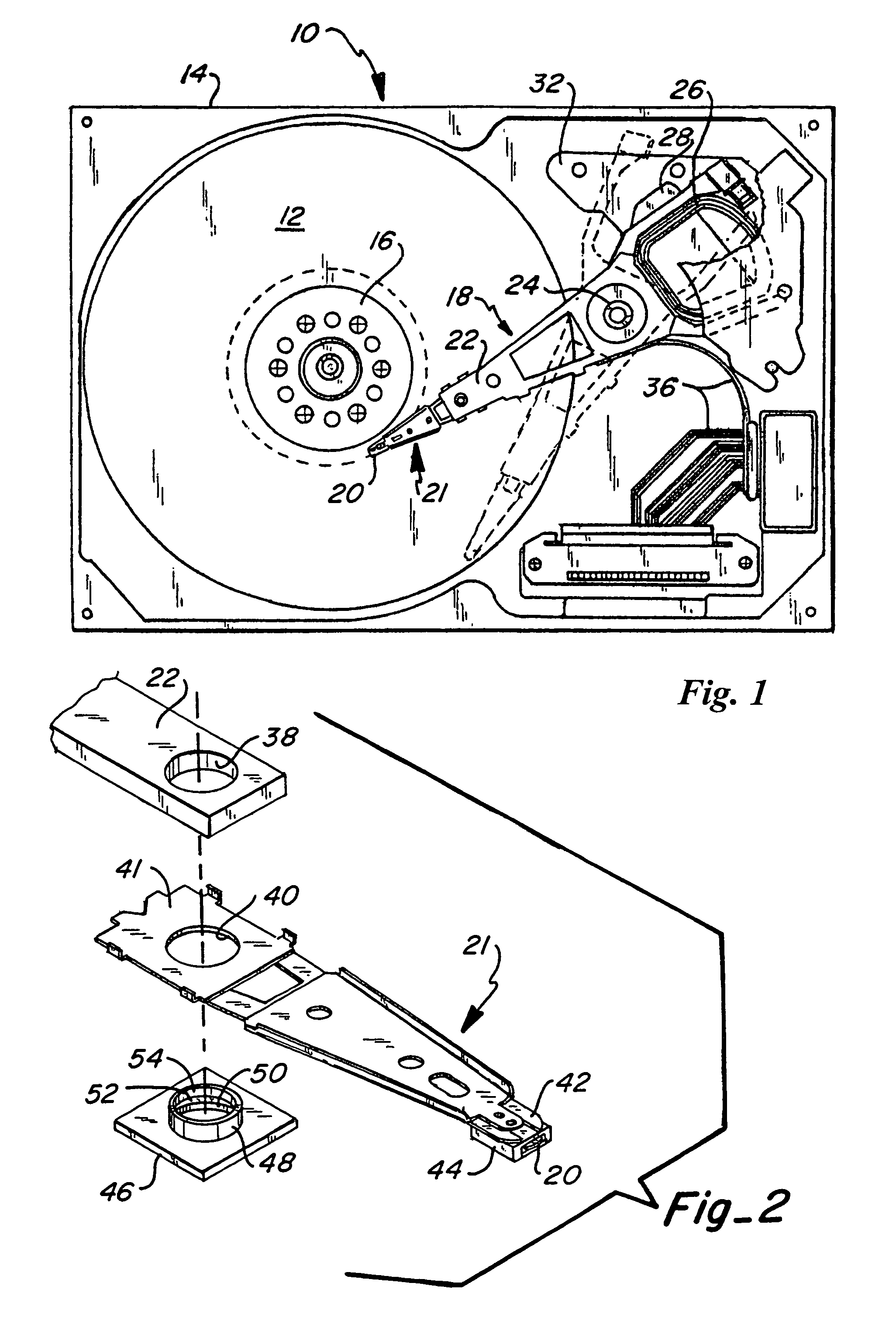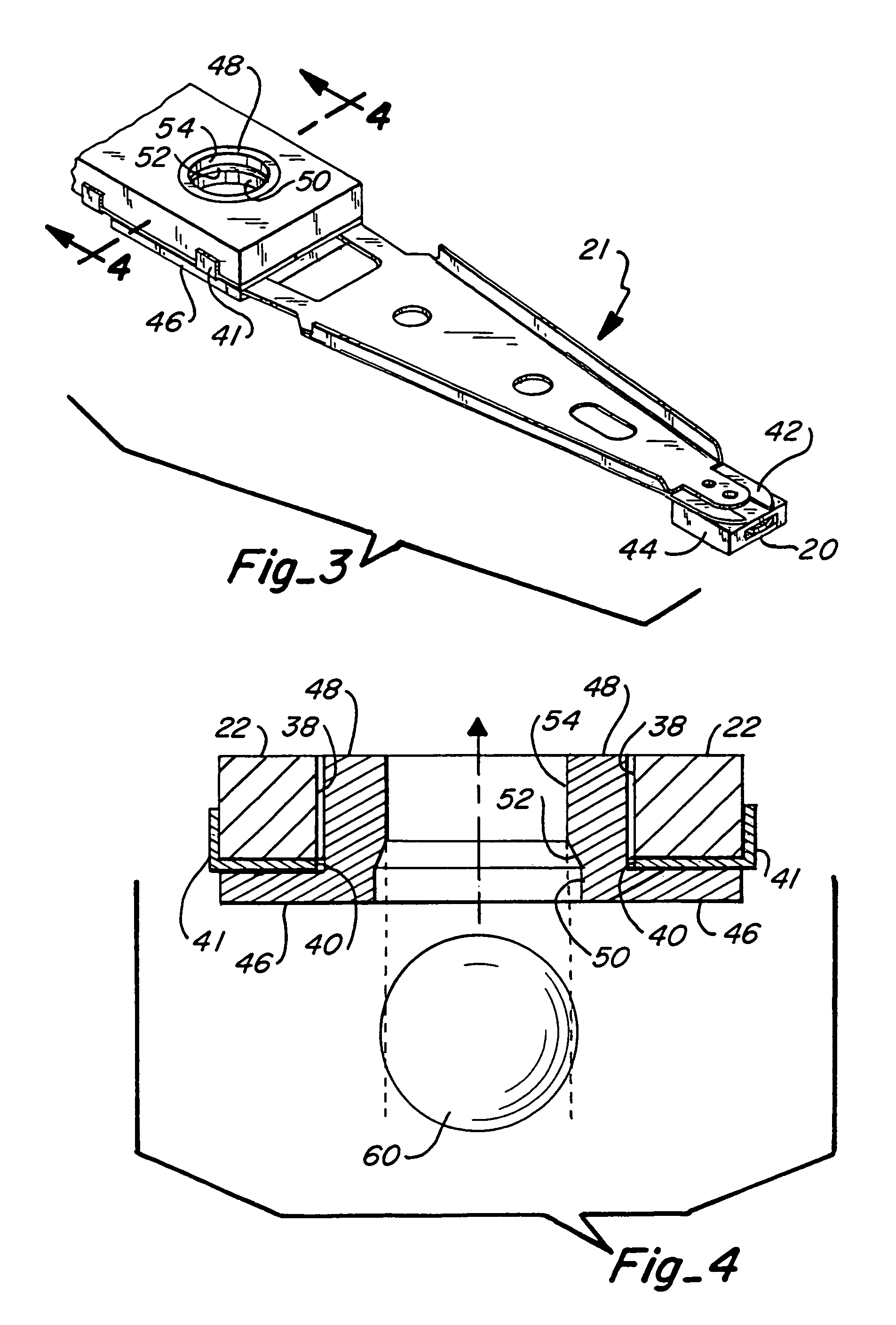Method of reducing torque out retention values in de-swaging of actuator of disk drive
a technology of disk drive and torque out retention value, which is applied in the field of disk drive, can solve the problems of metal debris on the surface of the disk, large damage to the disk, cracking and metal failure, etc., and achieves the effect of reducing the retention torque, reducing the chipping of metal components, and enhancing the chemical vapor deposition of chf3
- Summary
- Abstract
- Description
- Claims
- Application Information
AI Technical Summary
Benefits of technology
Problems solved by technology
Method used
Image
Examples
Embodiment Construction
[0023]FIG. 1 shows a plan view of a disk drive assembly 10, with the top cover removed. FIG. 1 is representative of any number of common disk drives. The disk drive assembly 10 illustrated herein includes at least one disk 12, typically having magnetic media on both the upper and lower surfaces thereof. The disk 12 along with other components of the disk drive are contained within a housing 14. The disk 12 is mounted over a hub 16 which is driven by a motor (not shown) enabling the disk to rotate at high revolutions per minute during operation. An actuator assembly 18 is shown rotatably mounted to an actuator pivot 24. Basic components of the actuator assembly 18 shown include one or more read / write heads 20 mounted on a flexure arm or suspension arm assembly 21. Suspension arm 21, in turn, is attached to an actuator arm 22, as further discussed below. In solid lines, the actuator assembly 18 is shown parked over the landing zone. The landing zone has been represented by the area of...
PUM
| Property | Measurement | Unit |
|---|---|---|
| thicknesses | aaaaa | aaaaa |
| thickness | aaaaa | aaaaa |
| thickness | aaaaa | aaaaa |
Abstract
Description
Claims
Application Information
 Login to View More
Login to View More - R&D
- Intellectual Property
- Life Sciences
- Materials
- Tech Scout
- Unparalleled Data Quality
- Higher Quality Content
- 60% Fewer Hallucinations
Browse by: Latest US Patents, China's latest patents, Technical Efficacy Thesaurus, Application Domain, Technology Topic, Popular Technical Reports.
© 2025 PatSnap. All rights reserved.Legal|Privacy policy|Modern Slavery Act Transparency Statement|Sitemap|About US| Contact US: help@patsnap.com



